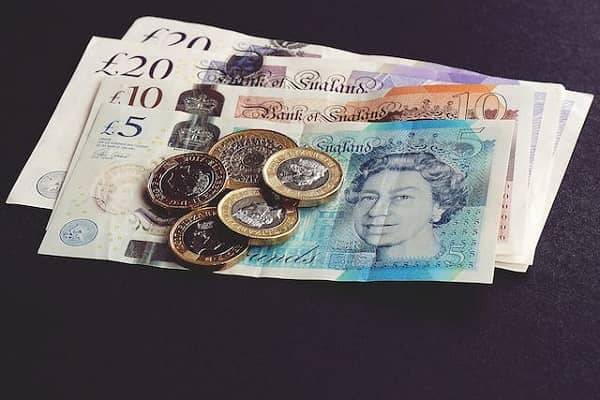As you consider becoming a music teacher or improving your teaching business, one big question is surely on your mind – what will I actually earn?
The income potential for music teachers in the UK can vary quite a bit depending on your qualifications, experience, location, and teaching format. However, understanding the average salaries, typical rates, and key factors that impact your earning ability is crucial.
This guide will break down everything you need to grasp when it comes to calculating the money you can make teaching music. Get ready to learn the inside scoop on real music teacher pay rates so you can take charge of your income!
Understanding Music Teacher Pay Rates
When setting your hourly rates and fees as a music teacher in the UK, you first need to understand the landscape. The pay structure differs quite a bit if you work at a school or college compared to being an independent, self-employed tutor.

As a private tutor, you have more control over what you can charge students but also take on more variability in your schedule and income. Let’s break down the typical pay rates to understand what to aim for.
Hourly Rates for Tutors vs Employed Teachers
The Musicians’ Union recommends a baseline rate of £40.50 per hour for a qualified, professional music tutor. But in reality, self-employed teachers often charge £15.22 per hour on average. This provides a competitive rate to attract more students while bringing in a reliable income stream.
If you teach at a school or college, your hourly pay rate isn’t a factor – instead, you earn an overall annual salary based on experience and credentials. The current average for these employed music teacher roles lands around £27,405 per year.
As a tutor, you can potentially earn more but need to put more effort into building your reputation and student base. There are upsides either way!
Varying Rates for Workshops and Group Classes
In addition to standard one-on-one lessons, many tutors offer supplemental workshops, band sessions, or group classes.
The Musicians’ Union recommends £250 per day for running a workshop, assuming 5 hours of work when you tally up the extra planning and preparation needed. Additionally, running band rehearsals or technique groups can provide bonus income too.
The key is knowing your baseline rate for private lessons, and then pricing these special offerings accordingly based on the time investments.
Average Salaries and Income Levels
While hourly rates provide a snapshot of what music teachers make, it’s also helpful to look at overall average salaries and income ranges. This provides useful context and benchmarks to aim for.

As mentioned already, the typical annual salary for a school or college employed music teacher across the UK is around £27,405. That assumes a full-time schedule and stable income based on the academic calendar.
If you operate as a private, self-employed tutor instead, what income range can you expect? Let’s dig into the numbers.
What Independent Tutors Actually Earn
For tutors charging around £40.50 per hour for lessons, a full time schedule would mean teaching 25+ hours a week. At £40.50/hour for 48 weeks (taking some holiday), that would result in about £48,600 in gross annual earnings.
After expenses, taxes and unpredictable cancellations, a solid net income target often lands around £36,000 annually if teaching is your sole job.
As a newer or part-time tutor fitting lessons around other work, an average rate of £15.22/hour could still generate a nice side income of £15-20k annually – that’s some solid beer money at the pub!
Over time as you gain more experience, credentials and student testimonials, you can slowly increase your rates and hours to scale up income. Setting future earning goals is key to improvement.
Teaching popular instruments like voice, piano and guitar provides an added advantage to fill your schedule quickly too. Consider offering diversity in your lesson offerings to maximize interest from the start.
Maximizing Your Income as a Music Teacher
While regional demand plays a role, there are fortunately many ways to directly impact your earning ability as a self-employed music tutor. Let’s cover key strategies to optimize your teaching income.
Building an excellent teaching profile is paramount – this means getting qualified, focusing on student results and hashing out glowing testimonials.
While qualifications like music degrees or CACHE teaching certifications require an investment of time and money, they can pay off handsomely through higher student fees long term.
Leveraging Facilities, Marketing and Professionalism
Beyond your raw skills, investing in professional branding, studio space and marketing materials helps attract more interested students at premium rates. Little details like your website, business cards, email templates and invoice branding make a subconscious impact.
Consider if you can allocate space in your home exclusively to lessons with a waiting area, or rent low-cost studio space to allow separation of your teaching environment from everyday home life. Use the space to display credentials, achievements and student artwork prominently as well.
A polished marketing approach includes modern communication channels like email outreach and social media. This facilitates connecting with prospective students more effectively. Maintaining a solid online presence provides additional exposure to get found by local students seeking music lessons.
Over time this professionalism allows growing your rates while retaining and attracting dedicated students consistently.
Balancing Lesson Volume with Pricing
When evaluating your money-making potential, also consider if you want to teach fewer lessons at premium rates, or pack in more hours charging less per student.
For example, teaching 30 lessons per week at £40.50/hour nets £1,215 total. But cutting back to 20 lessons weekly at the recommended rate of £40.50 per session still brings in £810!
The best income balance while retaining life satisfaction will be unique to your personal preferences. Finding this optimal equilibrium between pricing, student volume and availability takes some experimentation.
As you grow, offering options like lesson packages or discounts for longer terms can provide financial security too. The key is balancing reliable income with avoiding burnout over the long haul.
Understanding Taxes and Deductions

As an independent tutor, you operate as self-employed, so need to handle your own taxes including deductions for teaching expenses. It may feel intimidating initially, but getting a grasp of the key elements makes the process straightforward from year to year.
Some key deductions can majorly reduce your tax obligations compared to regular employment. Let’s break this down. . .
Claiming Business Expenses
Any costs associated with running your teaching business can be claimed as tax deductions if used exclusively for work. These include:
- Studio rental fees
- Instrument purchases
- Sheet music
- Marketing costs
- Website fees
- Professional membership dues
- Continuing education
To qualify, these expenses must be considered “ordinary and necessary” for operating your self-employed music tutoring services. Keep meticulous financial records and receipts to back up deduction claims.
Tax Brackets and Net Income
As a sole trader, your teaching income gets tacked onto your overall annual earnings to determine tax obligations. In 2023, the personal tax allowance in the UK covers the first £12,570 of income.
Beyond this threshold, earnings up to £50,270 are taxed at 20%, then 40% up to £150,000, and 45% beyond that. Your effective tax rate as a self-employed music teacher likely works out to 20-30% of net income.
These tax brackets apply to your “taxable income” – meaning total earnings minus any business expense deductions and other personal exemptions claimed.
Keeping expenses high and legal tax avoidance strategies in check are vital to maximizing income during your peak earning years!
Achieving Your Financial Goals
Achieving financial goals as a music teacher is possible with the right planning, smart goal setting, budgeting, and developing multiple income streams.
For example, saving up for a major purchase requires setting aside money each month. The exact amount would depend on your specific financial situation and goals.
Teaching itself may not fully provide a lavish existence right away. But by tactically maximizing your earnings through credentials, marketing and pricing, while minimizing taxes legally, the income can expand tremendously.
Getting creative with supplementary teaching offers like workshops or music camps also keeps revenue flowing during seasonal lesson lulls.
Every little bit contributed above basic living expenses gets invested towards the lifestyle objectives you’re working towards. With consistent effort translating teaching hours into savings over months and years, achieving exciting financial goals is completely within your grasp!
Frequently Asked Questions
Is There a Shortage of Music Teachers in the UK?
Yes, there is a shortage of music teachers in the UK. A recent survey found staffing levels falling in 36% of schools’ music departments. Almost 10% of schools don’t teach music despite it being required.
The pandemic intensified this shortage through cuts in music offerings and declining teacher numbers. Though attempts have been made to fill gaps, difficulties continue in satisfying the need for more music teachers.
What Qualifications Do I Need to Be a Music Teacher in the UK?
To become a music teacher in the UK, you typically need an undergraduate degree in music, plus teacher training qualifications to plan lessons and assess progress.
You could pursue a PGCE, Level 4 Certificate for Music Educators, Bachelor of Education in Music/Education, or PGDE in Music. Most teachers are proficient in an instrument, read music, and requirements vary between schools versus private instruction.
Final Words
A music teacher’s income potential depends on salaries, rates, qualifications, goals and aspirations. Baseline pay expectations provide helpful benchmarks, but the key is creating a lesson pricing strategy focused on long-term revenue growth to maximize earnings.
With the effort to build credentials, professionalism and student volume, hitting dream income milestones through teaching is possible.
About the Author
Team Guitar Top Review Talk about Guitars! We are a group of friends that bonded over their shared love of playing guitar. We all have different backgrounds and experiences with music, but we share a passion for writing about the things that we love.



Great information shared.. really enjoyed reading this post thank you author for sharing this post .. appreciated